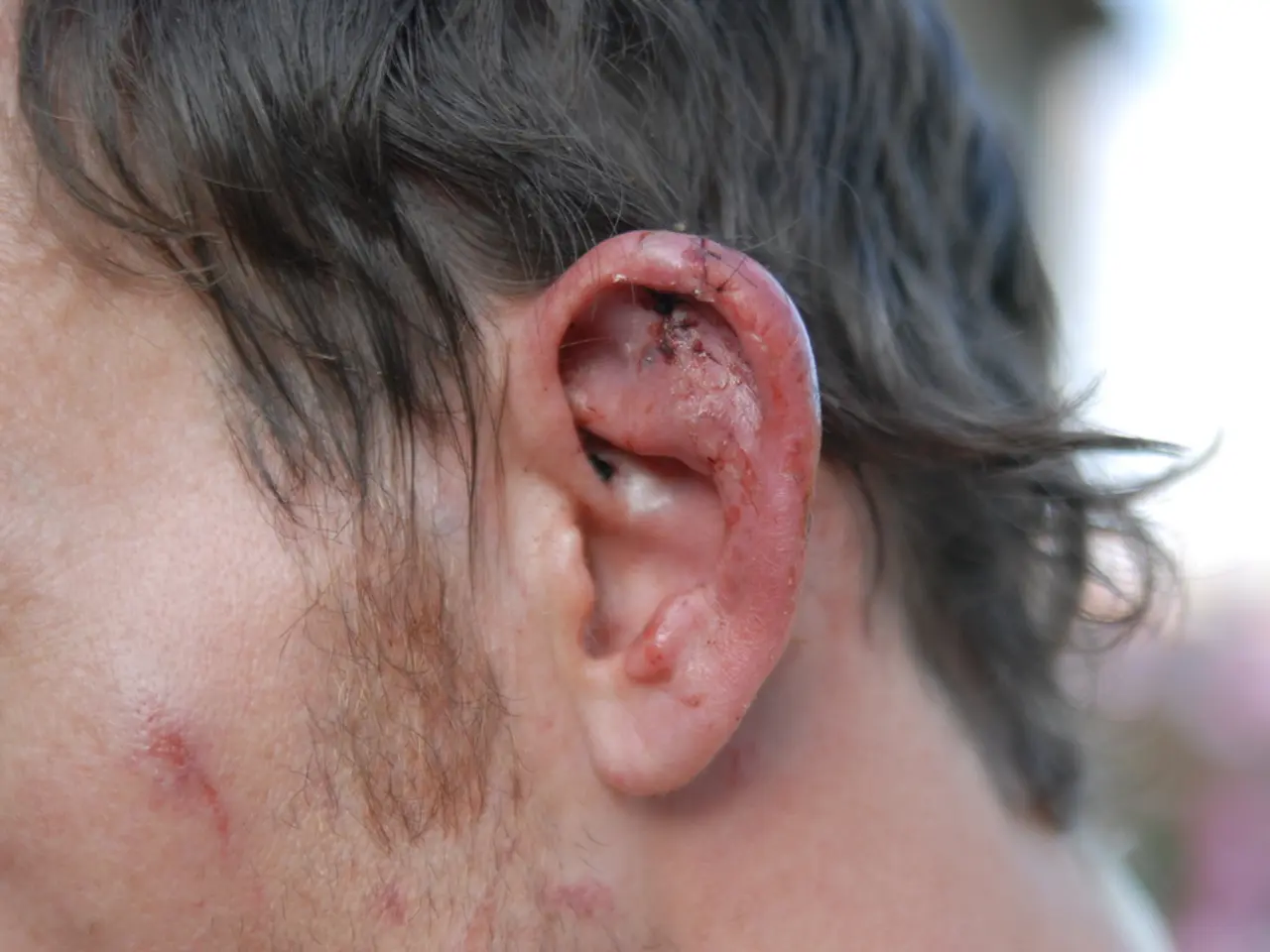Seizures: Origin, explanation, and management options
In the realm of health, convulsions - uncontrollable muscle contractions that can affect a person's body or the whole body - are a common occurrence, often associated with epileptic seizures. However, it's essential to understand that convulsions can be triggered by a wide range of factors, not just epilepsy.
Febrile seizures, for instance, are a type of seizure that can affect children between the ages of 6 months and 5 years old, during periods of high fever. These seizures typically last up to 5 minutes and, while most do not have lasting negative effects, it's crucial to call an ambulance if a seizure lasts more than 5 minutes or if the child does not recover quickly.
Epilepsy, as defined by the Epilepsy Foundation, is a condition that causes a person to experience many seizures. Epileptic seizures can indeed cause convulsions, with tonic-clonic seizures being the most common type, characterised by stiffening and jerking movements.
However, convulsions can also be nonepileptic in nature. Nonepileptic seizures (NES), also known as psychogenic nonepileptic seizures (PNES), are physically real events that resemble epileptic seizures but are not caused by abnormal electrical brain activity. These are often related to psychological stress, trauma (such as abuse), or underlying psychiatric conditions.
Other common causes of nonepileptic convulsions include sudden drops in blood sugar, low oxygen, electrolyte imbalances, or sudden drops in blood pressure. Conditions like postural orthostatic tachycardia syndrome can cause cerebral hypoperfusion, resulting in NES. Substance use and withdrawal, extreme sleep deprivation, certain sleep disorders, neurological and other physical disorders, factitious disorders, physical or emotional stress, movement disorders, and migraine-related conditions can also trigger such events.
If convulsions happen regularly, it's vital to speak with a doctor to determine the underlying cause. In rare cases, certain medications can cause epileptic seizures with convulsions, such as antidepressants, stimulants, and antihistamines. It's worth noting that not all people experiencing a seizure will have convulsions.
In the case of non-epileptic seizures, doctors often recommend psychological therapies such as cognitive behavioral therapy (CBT) to treat the condition. Some conditions that cause convulsions will pass with age, while others require medication to reduce their occurrence. In either case, a doctor will work with someone to develop an individualized treatment plan.
While it's important to be aware of the potential seriousness of convulsions, it's also crucial to remember that first aid practices can make a difference. If someone is experiencing convulsions, first-aid practices include placing them on the floor, putting them onto their side, clearing the area of hard or sharp objects, placing something soft and flat under their head, removing their glasses, loosening or removing anything around their neck, and calling an ambulance if the seizure continues for more than 5 minutes.
In summary, while epilepsy is a leading cause of convulsions, a wide range of nonepileptic triggers - including psychological, metabolic, substance-related, sleep-related, and neurological disorders - can also produce convulsive symptoms. Understanding these causes can help in seeking appropriate medical help and managing the condition effectively.
- Aq, a child between the ages of 6 months and 5 years old, might experience febrile seizures during periods of high fever, which are a type of seizure.
- Alzheimer's and other mental health conditions can trigger psychogenic nonepileptic seizures (PNES), causing convulsions that resemble epileptic seizures but are not caused by abnormal electrical brain activity.
- In the medical-conditions realm, certain conditions like postural orthostatic tachycardia syndrome, migraine-related conditions, and neurological disorders can cause convulsions.
- Science has revealed that low oxygen, electrolyte imbalances, or sudden drops in blood pressure can lead to nonepileptic convulsions, among other factors.
- COPD and other health-and-wellness conditions might cause cerebral hypoperfusion, which results in nonepileptic seizures.
- If a person experiences regular convulsions, they should consult a doctor for predictive therapies and treatments, such as cognitive behavioral therapy (CBD) for non-epileptic seizures, or medications to reduce the occurrence of epileptic seizures.




